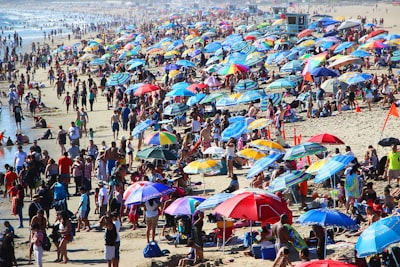The Boiling Point: Why This East Coast Heat Wave Demands Urgent Action
An oppressive and record-shattering heat wave is gripping the East Coast, pushing temperatures to never-before-seen heights in over a decade. The science is no longer in dispute: heat waves like this are intensifying, not just metaphorically breaking records, but truly threatening lives, infrastructure, and our sense of normalcy.
The Real Cost of Extreme Heat
For millions from Virginia to New England, today’s sweltering temperatures aren’t just uncomfortable—they’re dangerous. Public health experts warn that heat remains the deadliest weather phenomenon in the United States, often underestimated compared to hurricanes or floods. Vulnerable populations—children, the elderly, outdoor workers—suffer most.
Key Dilemmas:
| Dilemma | Societal Impact | Possible Action |
|---|---|---|
| Overloaded power grids and blackout risk | Threats to essential services and safety | Invest in grid resilience |
| Urban “heat islands” exacerbating temperatures | Amplifies health disparities in poorer areas | Expand tree cover, cool roofs |
| Disrupted daily routines, economic productivity | Lost work hours, volatile productivity | Flexible work, early warning |
Heat Waves and Climate Change: An Uncomfortable Truth
Meteorologists confirm: these aren’t freak occurrences, but part of a pattern linked to human-driven climate change. Decades-long trends show that heat waves are arriving earlier, lasting longer, and reaching new extremes. While politicians debate mitigation and adaptation, residents face the immediate consequences—a grim lesson in the cost of delay.
“You can’t air-condition your way out of this,” notes Dr. Karin Gleason from NOAA. Instead, durable solutions require transforming how cities are built, how energy is used, and how we value human health in climate planning.
Hidden Controversies
As temperatures soar, the gulf widens between those who can shield themselves—cool homes, private transportation—and those left exposed: the homeless, low-income families, and those trapped in substandard housing. The crisis is quietly amplifying existing inequalities, making it clear: climate adaptation is not just about infrastructure, but about justice.
Surprising Developments
- Record Emergency Room Visits: Hospitals are seeing spikes in heat-related admissions, including kidney failure and respiratory distress.
- Wildfires and Air Quality Alerts: The same heat fueling urban discomfort is creating tinderbox conditions in rural woodlands and contributing to hazardous “Code Red” air days even hundreds of miles away.
Looking Forward
This heat wave is a warning shot—an urgent signal that planning for the “old normal” is no longer enough. If we are to avoid spiraling costs and suffering, communities must adapt swiftly: cooling centers, better communication, new policies, and, critically, bold efforts to reduce future warming.
In sum: This moment isn’t just about surviving the hottest day in a decade. It’s about deciding who gets to survive comfortably—and whether we will rise to the challenge of a hotter, more unpredictable climate.
This article was inspired by the headline: 'It will be the hottest day in over a decade for parts of the East Coast as extreme heat wave reaches its peak - CNN'.

Comments
No comments yet. Be the first to comment!